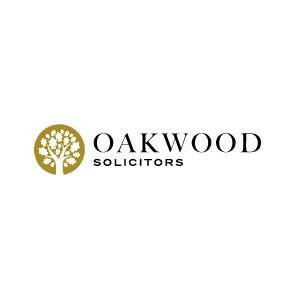Best Restructuring & Insolvency Lawyers in Leeds
Share your needs with us, get contacted by law firms.
Free. Takes 2 min.
List of the best lawyers in Leeds, United Kingdom
About Restructuring & Insolvency Law in Leeds, United Kingdom
Restructuring and insolvency law in Leeds, United Kingdom, provides a framework for individuals and businesses facing financial distress or insolvency. Leeds, as a major business hub in West Yorkshire and the wider North of England, is home to a wide range of companies that may encounter financial challenges. The legal system provides several mechanisms to address insolvency, such as company voluntary arrangements, administration, liquidation, and bankruptcy. These processes are overseen by the Insolvency Service and regulated by UK insolvency legislation, ensuring fairness and transparency for creditors, debtors, and other stakeholders.
Why You May Need a Lawyer
There are many circumstances where seeking legal help for restructuring and insolvency becomes essential. Individuals and businesses may require professional advice when experiencing mounting debt, cash flow problems, or creditor pressure. Common scenarios include:
- Facing statutory demands or winding-up petitions
- Understanding personal liability as a company director
- Negotiating voluntary arrangements with creditors
- Responding to court proceedings regarding unpaid debts
- Guidance on the administration or liquidation process
- Restructuring business operations to remain solvent
- Dealing with employee or pension obligations during insolvency
Expert legal support ensures you understand your rights and obligations, minimizes potential liabilities, and helps you choose the most appropriate course of action for your situation.
Local Laws Overview
In Leeds, restructuring and insolvency are governed primarily by national legislation, namely the Insolvency Act 1986 and the Insolvency Rules 2016. Local courts, such as the Leeds District Registry and Leeds County Court, often hear insolvency cases. Key legal processes for companies include administration, liquidation, and company voluntary arrangements, each designed to either rescue the business or distribute assets fairly among creditors if rescue is not possible.
For individuals, bankruptcy or individual voluntary arrangements are common paths. Directors of insolvent companies must be mindful of their duties, as wrongful or fraudulent trading can result in personal liability or disqualification. Additionally, Leeds, being a major financial center, has a network of insolvency practitioners and solicitors experienced in both local and national cases.
Throughout insolvency proceedings, local and national laws work in tandem to protect both creditors and debtors, providing structure to otherwise complicated financial difficulties.
Frequently Asked Questions
What is the difference between insolvency and bankruptcy?
Insolvency refers to the financial state where an individual or business cannot pay debts as they fall due or where liabilities exceed assets. Bankruptcy is the formal legal process used specifically for individuals, while companies go through liquidation or administration.
What happens if my business is insolvent in Leeds?
If your business is insolvent, you should seek legal advice straight away. Options include restructuring through a company voluntary arrangement, entering administration to seek business rescue, or proceeding to liquidation if recovery is not viable. Directors must act in creditors' interests from the moment insolvency is apparent.
Can I continue trading if my company is insolvent?
You can only continue trading in very limited circumstances. Directors have a duty to minimize creditor losses. Continuing to trade while insolvent can expose directors to personal liability for wrongful trading.
What is a Company Voluntary Arrangement (CVA)?
A CVA is a legally binding agreement between a company and its creditors to repay debts over an agreed period. It allows a business to continue operating while paying off part or all of its debts, often at reduced rates.
What is administration, and when is it appropriate?
Administration is a process that places a company under the management of an insolvency practitioner (the administrator). It is intended to rescue the company, achieve a better result for creditors than liquidation, or realise assets to pay secured/preferential creditors.
What are my obligations as a company director during insolvency?
Directors must act in the best interests of creditors, keep accurate records, avoid wrongful or fraudulent trading, and cooperate fully with insolvency practitioners. Failing to meet these obligations can lead to disqualification or personal liability.
What is the role of the Insolvency Service?
The Insolvency Service is a government agency that investigates misconduct, administers insolvencies, and helps enforce insolvency law. They also help oversee bankruptcy and disqualification proceedings against directors.
How does personal bankruptcy work in Leeds?
Personal bankruptcy is a legal process that declares you unable to pay your debts. An Official Receiver or insolvency practitioner will take control of your assets, pay creditors where possible, and discharge remaining debts after typically 12 months.
How are creditors paid in a company insolvency?
Creditors are paid according to a strict legal order. Secured creditors with a fixed charge are paid first, followed by preferential creditors (such as employees), then unsecured creditors, and finally shareholders if any assets remain.
Can restructuring avoid insolvency?
Yes, in many cases restructuring business debts, renegotiating terms with creditors, or selling non-core assets can stabilize finances and allow operations to continue, helping to avoid formal insolvency proceedings.
Additional Resources
If you are seeking further assistance or guidance in restructuring and insolvency matters in Leeds, the following resources can be helpful:
- The Insolvency Service - The UK government agency responsible for insolvency matters
- Citizens Advice Leeds - Offers free and confidential advice on personal debt and insolvency
- The Law Society - Provides guidance and helps locate regulated solicitors in Leeds
- Leeds City Council - Offers business support and information on local economic recovery
- Insolvency Practitioners Association - Details qualified insolvency professionals in your area
- Local business support organizations and the Chamber of Commerce for restructuring support
Next Steps
If you need legal assistance with restructuring and insolvency in Leeds, it is important to act promptly to protect your interests. Start by gathering all relevant financial information about your situation, including debts, assets, and correspondence with creditors. Consider contacting a specialist insolvency solicitor or practitioner for a confidential consultation.
When choosing a legal advisor, look for experience with similar cases, knowledge of local courts and laws, and a commitment to clear communication. An initial assessment will help determine the best course of action, whether negotiation, restructuring, or formal insolvency proceedings. Remember that seeking advice early offers the best chance to protect assets, limit liabilities, and achieve a positive resolution.
Lawzana helps you find the best lawyers and law firms in Leeds through a curated and pre-screened list of qualified legal professionals. Our platform offers rankings and detailed profiles of attorneys and law firms, allowing you to compare based on practice areas, including Restructuring & Insolvency, experience, and client feedback.
Each profile includes a description of the firm's areas of practice, client reviews, team members and partners, year of establishment, spoken languages, office locations, contact information, social media presence, and any published articles or resources. Most firms on our platform speak English and are experienced in both local and international legal matters.
Get a quote from top-rated law firms in Leeds, United Kingdom — quickly, securely, and without unnecessary hassle.
Disclaimer:
The information provided on this page is for general informational purposes only and does not constitute legal advice. While we strive to ensure the accuracy and relevance of the content, legal information may change over time, and interpretations of the law can vary. You should always consult with a qualified legal professional for advice specific to your situation.
We disclaim all liability for actions taken or not taken based on the content of this page. If you believe any information is incorrect or outdated, please contact us, and we will review and update it where appropriate.











